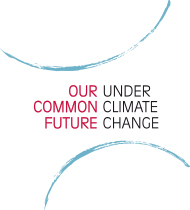It has been widely acknowledged and recognized that developed countries need to realign their economic strategies with the objectives of sustainable development and green growth. However, it is even more important that developing and least developed countries whose primary source of economic well-being is grounded in exploitation of natural resources need to account for the depletion or deterioration of these in tandem with the more conventional measures of economic performance. The World Bank Little Green Data Book 2014 presents that about 88 percent of low income countries and 58 percent of lower middle income countries are depleting their wealth (broadly defined to include produced capital, natural capital, and human and social capital). Alarmingly, most of these countries belong to Sub-Saharan Africa, Latin America and the Caribbean. In these countries, the stark reality is that investment and net savings adjusted for gains in human capital cannot compensate for the depletion of natural capital and wealth diluting effects of population growth. These issues have been taken into account in the global agenda through the Aichi targets for example. By 2020, according to Aichi target 2, governments have to integrate biodiversity values into their national accounts
Besides its contribution to the debates on indicators to measure human well-being and growth in the same vein as the Stiglitz-Sen-Fitoussi Commission (2009), environmental accounting could constitute a valuable tool to design adaptation and mitigation strategies. Indeed, climate change will impact the economies of developing countries but also the resources that the economy uses. For example, coastal degradation may hamper tourism activities; water scarcity might become more acute in certain countries and affect agricultural activities. Climate change, natural capital, ecosystems services and economic activities are thus interlinked and it is crucial to understand those links for better policy making and sound mitigation and adaption strategies.
During this side event, the Global Development Network will hold a roundtable on natural resource management under climate change. Bringing together policy-makers and researchers from both developed and developing countries, this side even will aim at understanding how natural resource management and natural capital accounting can help policy makers to design mitigation and adaptation strategies for climate change. Harison RANDRIARIMANANA, Special Advisor the President to the Republic of Madagascar, will deliver a keynote on the challenges and opportunities for natural resource management in developing countries, which will introduce the round table.
Three country studies currently undertaken in Madagascar, Mauritius and Morocco will illustrate the debates: the land use inventories in Madagascar, the governance of the water sector in Mauritius and the effect of coastal degradation on Moroccan tourism.



